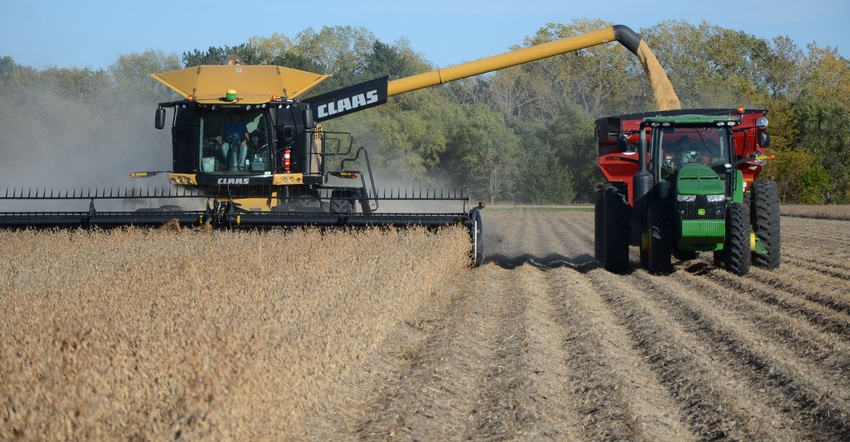
Marketing grain can seem like a daunting task. However, for Ryan Weeks, who farms near Hastings, it all goes back to managerial accounting — which has been a part of Weeks' farming operating for nearly 13 years. "It takes a lot of time, and it's detailed, but we don't feel we'd be where we are without it," he says.
It starts with monitoring every line item in the farm inventory. One of Weeks' employees manages inventory, keeping track of fertilizer, chemicals, seed, fuel down to the field level, as well as costs like family living expenses. Inventories are tracked on spreadsheets and plugged into accounting software to keep track of the value on-hand.
"How do you market a crop if you don't know how much it costs you to produce it? Managing inventory on hand has been big for us — including inputs and our outputs. Every single thing we spend money on is figured into the budget," Weeks says. "Google Drive, Evernote and Dropbox are our friends."
He also uses three-year cash flows in his accounting.
"We run cash flows at least two or three years out. I'm running 2019's cash flows right now," Weeks says. "Then we'll do a preliminary 2020 cash flow. We want to see how what we're doing is affecting us long-term."
Of course, knowing how much is available to sell is also important. And this means monitoring grain supplies for marketing purposes — including checking bins manually every other week. "We try to keep a good handle on our grain inventory," Weeks says. "Sometimes that's not the easiest thing to do. But we try to make sure we weigh everything coming out of the field so we know our bushels in the bins and as we take them out try to manage that inventory."
While all of his conventional crops are sold directly after harvest to the elevator, all of Weeks's non-GMO crops are marketed through identity preserved programs — and he notes his marketing strategies vary depending on the year.
"I might set futures or basis later. I might sell them on the cash market," he says. "Every marketing year is different."
That's why he works closely with a marketing service, AgYield — including advisers on determining which marketing strategy is best for the situation.
"We're so busy raising a crop that being completely on top of marketing is not a reasonable expectation. I rely on a lot of advice from them," Weeks says. "We have a plan, we sit down at beginning of the year based on what we think's going to happen and they help me adjust as we go along. Typically, our marketing strategy depends on basis levels. When the basis is wide, we move toward hedge-to-arrive contracts. When basis is narrow we look toward forward contract."
Both of these contracts allow Weeks to price grain for delivery at a later time.
It also includes an AgYield app that factors in insurance data, crop data for the year for different varieties and hybrids, crop progress down to a ten-minute delay, and various marketing strategies for profit potential.
"It gives us the ability to know when we're at from a profit standpoint. At that point we can sell some of our crop. We can sell a little, sell a lot, sell a little at a time and scale it up," Weeks says. "You can have all the information in the world but if you don't act on it, it's useless."
About the Author(s)
You May Also Like






